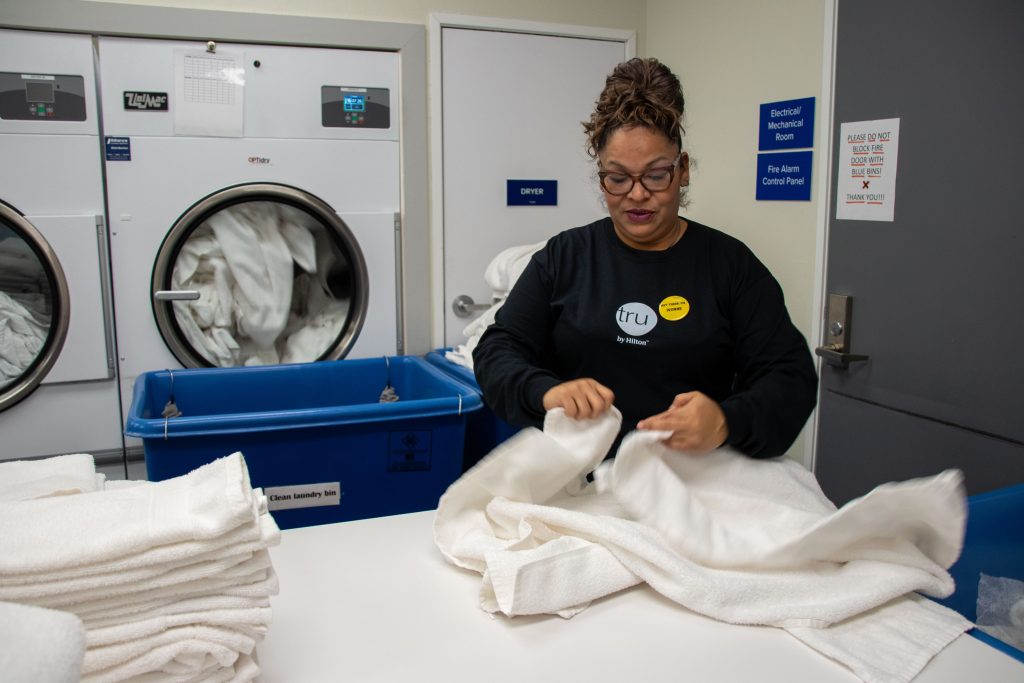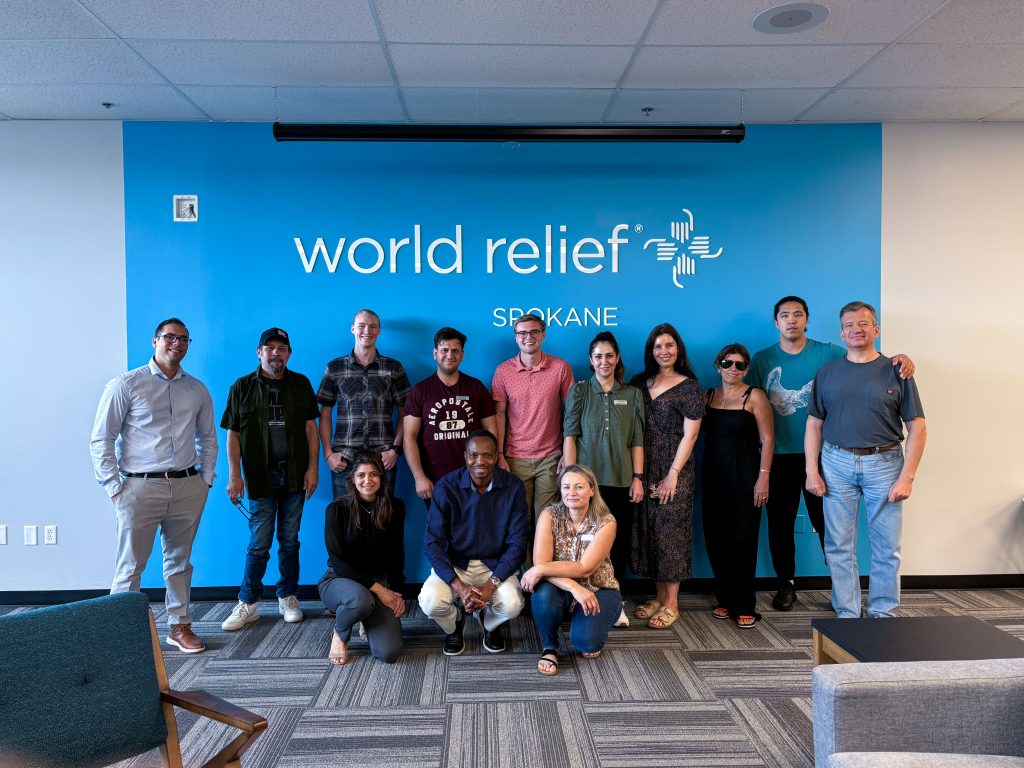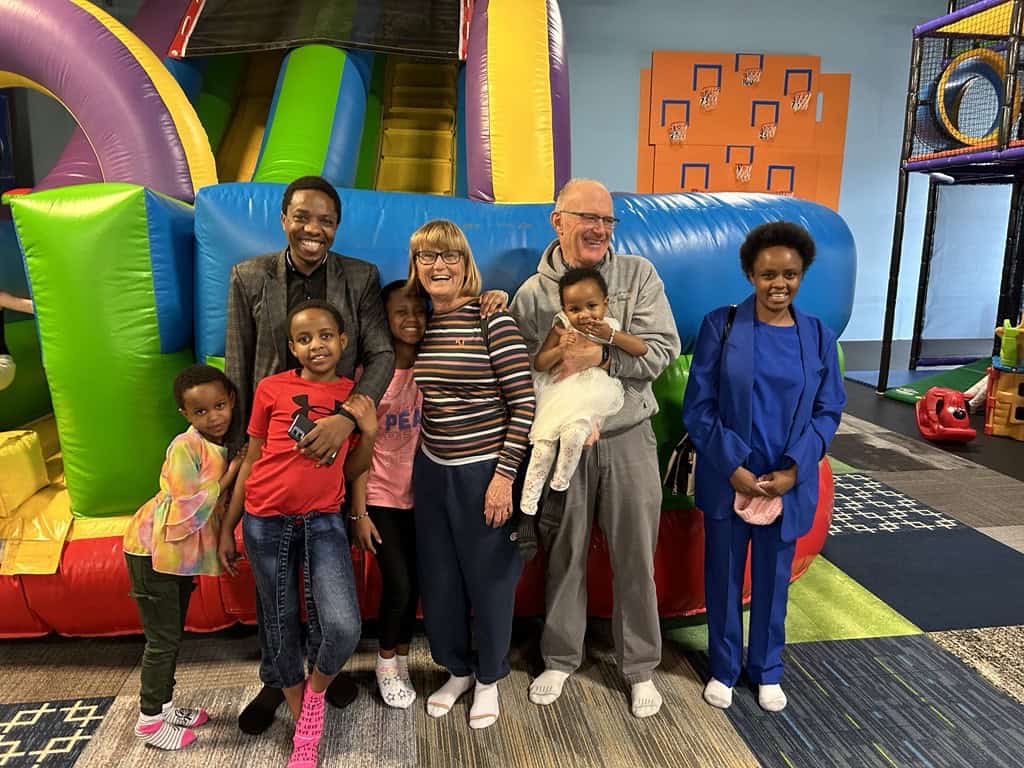By Isaiah Schmidt, World Relief summer intern
There are dozens of languages spoken, countless different programs, many countries complete with socio-political histories that deeply affect a client’s background… and that’s only to name a few factors.
As an “I only speak American” – woefully unprepared intern – it was nice to know that the environment here has to be collaborative in order to function. There’s this constant buzz. At any moment, you could be pulled from one thing to another. In the same way you might need to ask for an interpreter or see who might know more about a program, responsibilities come up where you’re expected to contribute.
For someone who struggles to sit still typing away in a cubicle, this was a welcome surprise. While there were occasional projects and some regular tasks that grounded my time, so much of it was spent on miscellaneous adventures or projects. From driving clients to appointments to building shelves to helping clients apply for housing assistance, my expertise was regularly reduced back to zero as some new task lay ahead.
Building from ground zero
While sometimes frustrating, after I got the hang of it, the constancy of challenges was often gratifying. Rarely (if ever) was this process so debilitating that I couldn’t get the job done. And even if I couldn’t, the stakes were never life or death.
Those frustrating moments where you’re left asking for help in a laundromat (or needing to ask questions that shamefully reveal your ignorance) were a reminder of the endless restarting that refugees go through. Walking into this country without any background on how finances work, how to go to the doctor, or even just how to get from one place to another, requires starting from scratch.

Some refugees have expressed their frustration at having gone from entirely competent, productive, capable, at-home members of society to needing to learn everything all over again. Especially for those who have just arrived, the excitement at having finally arrived at America can be stifled by the difficult reality of rebuilding.
And it makes sense.
These people have never needed to think twice about how to do these mundane tasks, but the unjust reality of war and violence had rendered those lifelong skills irrelevant.
What makes World Relief so special to me
World Relief acts as a bridge between the way things are and the anticipated goal of self-sufficiency. You don’t need to learn a new language to get started here (though you’re strongly encouraged to attend English learning classes). And, generally, new arrivals don’t need to explain the challenges they are facing. Often, they are speaking with someone who is herself a former refugee and has walked the same road before them.
Being able to work with these people has given me the chance to learn so many different things. Not just about the world, but the way our own country operates.
I have served in so many spaces have where refugees were not considered at all or where they were viewed as helpless and incapable of self-sufficiency. The reality is not so binary. Partnership seems like a far more helpful mentality. Those we serve turn around and serve us and other refugees.

The early church in the New Testament
The New Testament church rarely made a differentiation between the “haves” and “have-nots.” The community would have enough because God would provide. Whatever role you had, whether as someone in need or someone sharing from his abundance, was to be fulfilled faithfully, knowing that at any moment that role could shift.
World Relief is an environment where this mentality seems built into the DNA. So many of the case managers and staff here were refugees themselves. It makes humility a prerequisite. It’s something I know I’ve learned a lot from and hope to hold onto in the future.
Being competent doesn’t prevent you from asking questions. Looking for spaces where you’re a novice and developing a well-rounded perspective pays off in unexpected ways. It has caused me to examine my friendships under a new lens and better foster those relationships.
I believe every person is created in the image of God.
Spokane is filled with people to learn about and be inspired by. Those chances are only heightened when interacting with people who come from different backgrounds.
As a Christian, Scripture provides an accompanying stick to the proverbial carrot.
Prophets in the Old Testament regularly discount Israel’s worship and sacrifices as they fail to care for the vulnerable. Prophets like Isaiah harshly called out Israel’s failure to care for the foreigner. Books like Leviticus give instructions about taking specific steps to take care of them (Lev. 23:22).
There are even references in the New Testament to individuals welcoming strangers who turned out to be angels.

Following God’s instructions has the two-fold effect of avoiding negative consequences while laying the foundation for a fuller life.
This often comes at the cost of sacrifice or even sometimes suffering, but faith provides the hope that all of this is worth it. “The foreigner” is just one of many groups deemed vulnerable in Scripture, and while every believer is called to love the stranger, God provides different opportunities and experiences to different people.
Still, the call cannot be ignored, and I’m grateful to have been given the chance through this internship to see why that calling is beautiful and enlightening.

About the Author
Isaiah graduated in May 2024 from Whitworth University with a degree in marketing and served as a fellow with World Relief Spokane the following summer. This fall he plans to continue his graduate studies at Whitworth in marriage and family therapy.
